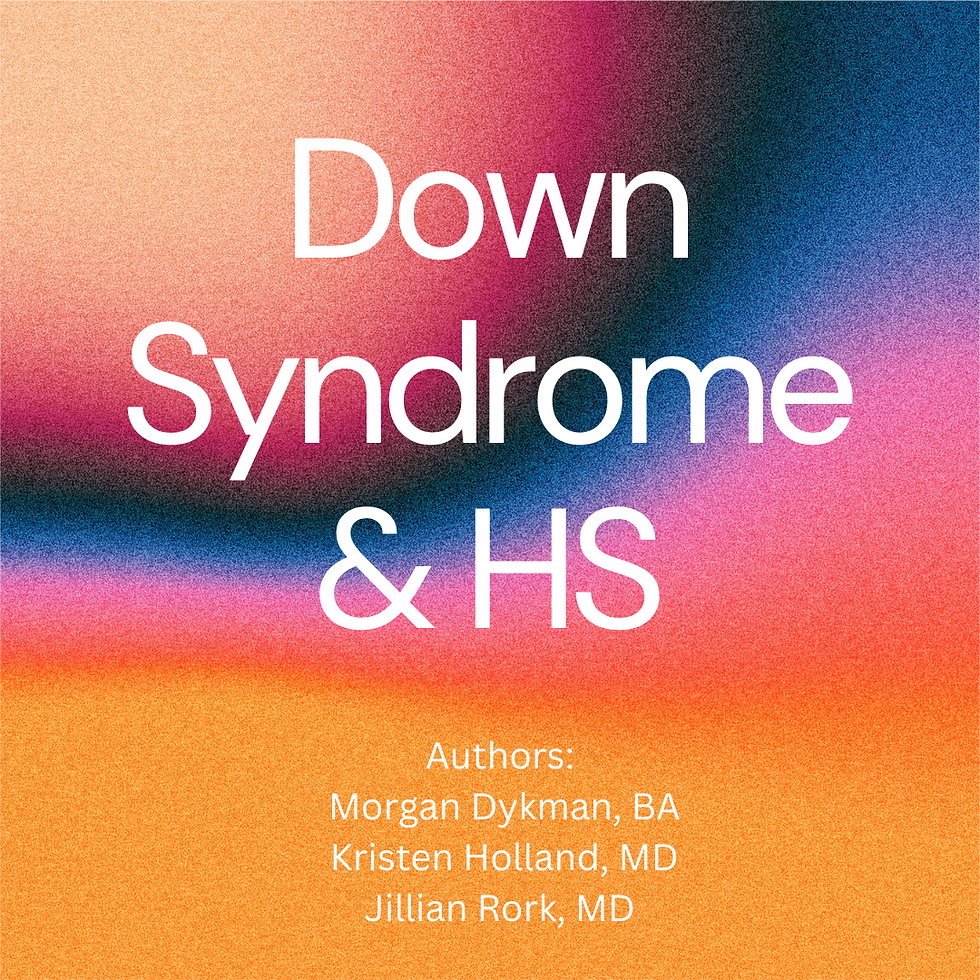Botox for HS
- Denise Panter-Fixsen

- Nov 13, 2020
- 2 min read
Updated: May 3, 2022

Botox can be used as a non-FDA approved (off label) treatment for hidradenitis and is most beneficial for those with stage 1 and stage 2. For those with stage 3, it can also be beneficial if you’re only impacted in a few areas.
If you suffer from excessive or chronic sweating, and this is a trigger for you, Botox may be beneficial. Botox cannot be used over a large part of your body and you cannot have several injections at once as it would be too toxic. In order to treat multiple areas, or a more severe area, this would have to be done one area at a time. Botox is not a cure and would require lifetime treatment for your disease. Depending on the severity of your disease the treatment could be needed approximately every 6 months as maintenance for each individual area.
Botulinum toxin (Botox) is a neurotoxin produced by the bacterium Clostridium botulinum which causes a flaccid muscle paralysis. It is used as an off-label treatment for hyperhidrosis (chronic sweating). Botulinum toxin inhibits the release of acetylcholine at postgangli-onic cholinergic synapses, with subsequent reduction in sympathetic activation of sweat glands. It is proposed that in HS the subsequent decrease in apocrine gland activity limits the tendency of follicular rupture and inflammation. BTXA represents a novel and promising treatment option in this complex disease. Further research is required to understand the role of BTXA in management of HS, including the optimal dosage and frequency of administration.
Botox does come with possible side effects. Keep in mind that not all side effects will happen to every one and all side effects must be listed as required by the FDA. The side effects listed below are more common when used in the lymph node areas and especially when used frequently. As with any pharmaceutical drug, you have to weigh the risks and benefits.
Most common side effects: Dizziness, difficulty swallowing, respiratory infections such as cold or flu, pain, nausea, headache, and muscle weakness. Double vision, drooping or swollen eyelid, eye irritation, dry eyes, tearing, reduced blinking, and increased sensitivity to light, respiratory infections such as cold or flu, headache, fever, neck or back pain, and anxiety may occur.
Very serious allergic reaction to this drug is rare, however, seek medical help right away if you notice any symptoms of a serious allergic reaction, including itching/swelling (especially of the face/tongue/throat), rash, severe dizziness, or trouble breathing.
hsconnect.org
This is an awareness article for educational purposes only and is not intended to replace the advice of your doctor or other health care provider.
Written by Denise Panter-Fixsen
Edited by Brindley Kons



